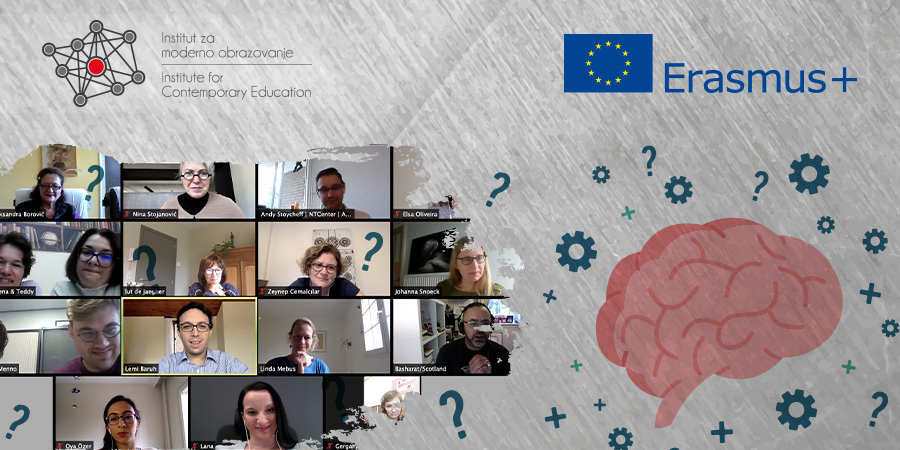
The first transnational meeting marked the beginning of project activities
On Monday and Tuesday, October 19 and 20, 2021, the work on the implementation of the first major educational project, The Art of De-biasing (dBias) began by holding the first transnational meeting of the representatives of partner organizations.
The project consortium consists of organizations and educational institutions from seven European countries, including only one representative from Serbia – the Institute for Contemporary Education.
As representatives of ICE, members of the expert team, Aleksandra Borović, project associate, Nina Stojanović, project manager, and Dr. Svetlana Belić Malinić, Academic Director of the Institute and expert in the field of international education, attended the meeting.
Why is the dBias project important for world education?
The dBias project is considered a successor of the Erasmus+ project De Facto, implemented by the NTCenter from Bulgaria, one of the seven European partners.
See who else makes up the selected international team of partners on the dBias project.
As the De Facto project analyzed the type of misinformation that reaches students, and the ways in which it is adopted, a need to define precise tools that would serve as a relevant tool to combat the acceptance of various educational biases as facts arose at a global level.
More precise identification and prevention of cognitive biases as facts puts the dBias project at the top of the list of educational priorities, lending it real practical significance in terms of creating and preparing digital resources for examining actual student understanding and cognitive processing of the acquired content.
What has Serbian education gained by participating on the ICE transnational project?
Given that partners on this project include renowned educational institutions with exceptional influence at national level, it is obvious that all members of the consortium possess a wide range of knowledge, professional experience and skills that will contribute to the thematic consideration from different angles. This breadth of knowledge and experience will also contribute to a better understanding of the problem, a more creative approach to the proposed solutions, but also teaching strategies aimed at eliminating cognitive biases. That would mean that Serbia and the world will finally get the necessary teaching aids that provide teachers with accurate information regarding the type of bias that affects students’ behavior and their understanding of the teaching material.
In order to cover a wide range of cognitive biases encountered in the educational process, the very first steps in project implementation will be focused on the precise selection of the most prevalent biases around the world, regardless of cultural and geographical differences.
Members of ICE get a special opportunity to be part of the global dBias project
The Institute for Contemporary Education will give a special opportunity to all ICE members to contribute to this project by considering their teaching experience with students and interaction with other teachers through a framework of 200 biases, and by participating in the selection of the most common educational biases.
In this way, each ICE member is given a once-in-a-lifetime opportunity to make a personal contribution to world education by creating the very first international materials, tools and strategies for eliminating cognitive biases, and thus encourage the development of the educational process at a global level.
You can learn more about the dBias project HERE.
For more information about the project, please contact us via email edu@institut.edu.rs, or telephone 011/40-11-260.


 Srpski
Srpski




